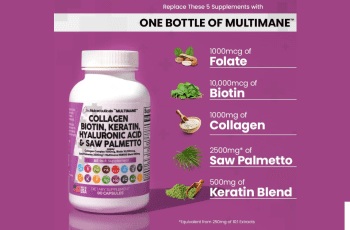As a discerning consumer, it’s important to be aware of the potential risks associated with the use of toxic antibacterial soaps. While these products claim to keep us safe from harmful bacteria, they may actually pose dangers of their own. From the harmful chemicals they contain to the uncertainties surrounding their efficacy, it’s essential to understand the facts before incorporating them into our daily hygiene routine.
Antibacterial soaps often contain active chemicals like triclosan (TCS) and triclocarban (TCC) that are intended to kill bacteria. However, concerns over the safety and effectiveness of these products have led the FDA to ban the use of certain active ingredients in antibacterial soaps. Triclosan, a commonly used ingredient, has been linked to health issues such as thyroid dysfunction, developmental problems, and weakened immunity.
Despite these concerns, the risk of these chemicals to human health remains controversial. It’s worth noting that plain soap and water are just as effective as antibacterial soaps in removing bacteria from our hands. In fact, the FDA states that there isn’t enough scientific evidence to prove that antibacterial soap is better at preventing illness. Additionally, it’s important to understand that the FDA ruling does not apply to hand sanitizers or antibacterial soaps used in hospitals.
Toxic Antibacterial Soaps
- Toxic antibacterial soaps may pose health risks due to their harmful chemicals.
- Plain soap and water are as effective in removing bacteria from our hands.
- The FDA has banned certain active ingredients in antibacterial soaps due to safety concerns.
- Triclosan, a common ingredient in antibacterial soaps, has been linked to thyroid dysfunction, developmental problems, and weakened immunity.
- The FDA ruling does not apply to hand sanitizers or antibacterial soaps used in hospitals.
Now that we have shed light on the risks associated with toxic antibacterial soaps, let’s explore the FDA’s concerns and regulations surrounding these products. Understanding these factors is crucial in making informed decisions about our personal health and well-being.
The FDA’s Concerns about Antibacterial Soap
The FDA has expressed significant concerns over the long-term safety and effectiveness of antibacterial soaps. In response to these concerns, the FDA has implemented regulations and banned the use of certain active ingredients in these products. Two common active ingredients, triclosan and triclocarban, have been prohibited due to potential risks and lack of evidence proving their superiority over regular soap and water. The FDA ruling, however, does not apply to hand sanitizers or antibacterial soaps used in hospitals.
Manufacturers of antibacterial soaps have failed to provide sufficient scientific evidence supporting the effectiveness of their products in preventing illnesses compared to regular soap and water. This lack of evidence has led the FDA to make the decision to ban the use of certain active ingredients. The FDA regulates and evaluates the safety and efficacy of products to ensure the wellbeing of consumers.
While the use of antibacterial soaps may seem advantageous, the FDA ruling highlights concerns that these products may not offer any significant benefits over traditional soap and water. The FDA emphasizes that regular soap and water, when used correctly, are equally effective at removing bacteria and maintaining good hand hygiene.
The FDA’s ruling reflects their commitment to protecting public health and safety. By restricting the use of certain active ingredients in antibacterial soaps, the FDA aims to prevent potential risks associated with these chemicals. It is crucial for consumers to be aware of the FDA’s concerns and make informed decisions when choosing products for their personal hygiene.
Potential Health Risks of Triclosan
Triclosan, a common ingredient in antibacterial soap, has raised concerns due to potential health risks. Animal studies have revealed that triclosan can lead to a variety of health problems, including thyroid dysfunction, developmental issues, and weakened immunity. However, the exact extent of these risks to human health remains controversial.
Research has also indicated that triclosan may be associated with an increased risk of food allergies and contact dermatitis. This suggests that the use of triclosan in antibacterial soap could potentially have adverse effects on individuals with sensitive skin or existing allergies.
As a mild endocrine disruptor, triclosan can interfere with hormone function in the body. This can have far-reaching implications for overall health and well-being, particularly considering that triclosan can be retained in tissues. This retention raises concerns about the potential long-term effects of exposure to triclosan.
While animal studies have provided valuable insights, further research is needed to fully understand and quantify the health risks associated with triclosan in humans. This ongoing investigation will shed light on the potential impacts of triclosan on human health and help inform regulatory decisions and consumer choices.

Concerns about Antibiotic Resistance
The use of antibacterial soaps has raised concerns about antibiotic resistance. Antibacterial soaps may not fully neutralize bacteria, allowing resistant strains to thrive. This can lead to the rapid increase of bacterial strains that are resistant to antibiotics, further complicating the treatment of infections.
When using antibacterial soap, weaker bacteria can be stripped away, leaving behind stronger, resistant strains. These resistant strains can then evolve and spread, making it difficult to control infections and limiting treatment options.
While there is ongoing debate and no definitive proof that antibacterial agents directly cause antibiotic resistance, the FDA considers it a potential risk. It’s important to exercise caution and ensure the responsible use of antibacterial soaps to minimize the emergence of antibiotic-resistant bacteria.
To address this concern, proper hand hygiene practices should be followed. Washing hands with plain soap and water for at least 20 seconds is effective in removing bacteria and reducing the risk of infections. Additionally, using hand sanitizers with alcohol can also be a suitable alternative when soap and water are not readily available.
Preventing Antibiotic Resistance
To combat antibiotic resistance, it is crucial to use antibiotics responsibly and only when necessary. Antibiotics should always be taken as prescribed and completed in their entirety, even if symptoms improve. Avoiding the unnecessary use of antibiotics and practicing good hygiene, including regular handwashing with plain soap and water, can help reduce the spread of antibiotic-resistant bacteria.
By understanding the potential risks associated with antibiotic resistance and adopting proper hand hygiene practices, individuals can play a part in safeguarding public health and ensuring the effectiveness of antibiotics for future generations.
Environmental Impact of Antibacterial Soaps
The use of antibacterial soaps containing triclosan has raised concerns about its environmental impact. Triclosan, a common ingredient in these soaps, can enter waterways through sewage systems and solid waste, ultimately leading to its presence in the environment. This chemical has been detected in various animals, including fish and birds, raising further environmental concerns.
Triclosan is known for its persistence, meaning it can remain in the environment for an extended period. Although studies are ongoing, the overall impact of triclosan on ecosystems appears to be pervasive. Researchers are exploring the potential consequences of its presence and widespread use in consumer products.
To illustrate the environmental impact of triclosan, consider its ability to accumulate in living organisms. As triclosan continues to enter waterways, it can bioaccumulate in animals through the food chain. This poses a potential risk to wildlife and ecosystems.
Efforts are being made to better understand the ecological risks associated with triclosan and develop sustainable alternatives. It is important to consider the potential consequences of our personal choices, such as opting for environmentally friendly and non-toxic alternatives to antibacterial soaps that can help minimize the environmental impact.
In the next section, we will explore the FDA’s ruling on antibacterial soaps in response to these concerns.
FDA’s Ruling on Antibacterial Soaps
In response to growing concerns about the safety and effectiveness of antibacterial soaps, the FDA has recently issued a ruling on these products. The FDA’s ruling, which applies to consumer antibacterial soaps and body washes used with water, includes a ban on certain active ingredients, including triclosan and triclocarban.
This ruling does not extend to hand sanitizers or antibacterial soaps used in hospitals, where their use is still considered necessary. However, for everyday consumer use, the FDA has determined that the risks associated with these ingredients outweigh their potential benefits.
Manufacturers of antibacterial soaps have been given one year to comply with this ruling, ensuring that their products no longer contain the banned ingredients. This gives consumers the assurance that they will now have access to safer alternatives in the market.
The FDA’s decision to ban triclosan and triclocarban in antibacterial soaps is based on several factors. Firstly, there are concerns regarding the long-term safety of these ingredients. Studies have indicated potential health risks, including thyroid dysfunction, developmental problems, and weakened immunity, associated with their use.
Additionally, the FDA highlights the lack of scientific evidence proving the superiority of antibacterial soap over plain soap and water. Studies have shown that regular soap and water, when used correctly, are just as effective at eliminating bacteria and preventing illness.
To exemplify the FDA’s ruling and the banned ingredients, take a look at the chart below:
| Banned Ingredients |
|---|
| Triclosan |
| Triclocarban |
| … |
With the FDA’s ruling, consumers can now feel more confident in their choice of hand hygiene products. It is essential to read labels carefully and avoid products that contain triclosan or other banned ingredients. Instead, individuals can turn to safe alternatives such as natural soaps and non-toxic options.
By practicing proper hand hygiene, including washing hands with regular soap and water for at least 20 seconds, we can maintain good hand hygiene and prevent the spread of infections without the need for antibacterial soaps.
Safe Alternatives to Antibacterial Soaps
When it comes to choosing the best soaps for hand hygiene, there are safe alternatives to antibacterial soaps that are worth considering. Natural soaps made with organic ingredients provide an effective way to clean hands without exposing ourselves to harmful chemicals. These natural soap options are gentle on the skin while still effectively removing dirt and germs. They’re also environmentally friendly, as they do not contain antibacterial agents like triclosan that can be detrimental to aquatic ecosystems and wildlife.
Non-toxic soaps are another great choice for those seeking safe alternatives. These soaps are free from antibacterial agents and harmful chemicals, making them a suitable option for individuals with sensitive skin or those who prefer a more gentle approach to hand hygiene. Many manufacturers have recognized the concerns surrounding antibacterial soaps and have removed these ingredients from their products in response to the FDA’s ruling.
When choosing non-toxic soaps, it is important to read labels carefully and ensure that they do not contain triclosan or other banned ingredients. Look for soaps that are made with natural ingredients and certified as non-toxic by reputable organizations. By selecting the best non-toxic soaps, you can maintain good hand hygiene without compromising your health or the environment.
Remember, despite the popularity of antibacterial soaps, regular soap and water remains one of the most effective ways to prevent the transmission of germs. Proper handwashing techniques using plain soap and water for at least 20 seconds should always be practiced. It is a simple yet powerful method that can help keep you and those around you safe.

By opting for safe soap alternatives, such as natural and non-toxic options, you can contribute to a healthier lifestyle for yourself and a more sustainable environment for everyone. Take the time to explore the wide range of safe soap options available and make a conscious choice to protect your health and the planet.
Conclusion
After careful evaluation, it is evident that the risks associated with toxic antibacterial soaps cannot be ignored. The key active ingredients, such as triclosan and triclocarban, have been linked to potential health risks and may contribute to antibiotic resistance.
On the other hand, plain soap and water, when used correctly, are equally effective in preventing illness and the transmission of germs. The FDA states that there is no significant scientific evidence proving the superiority of antibacterial soap over regular soap and water.
To ensure the safety of your hands and promote good hand hygiene practices, it is recommended to choose safe alternatives to antibacterial soaps. Natural and non-toxic options are available in the market, free from harmful chemicals. Practicing proper hand hygiene, including washing hands with regular soap and water for at least 20 seconds, is essential in maintaining cleanliness and preventing the spread of infections.




